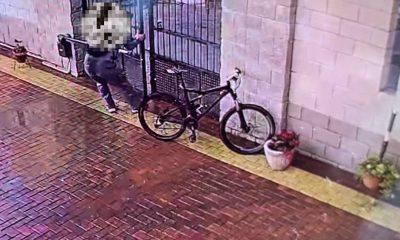Costa Blanca
Torrevieja Council is trying to restrict the terraces along the promenade
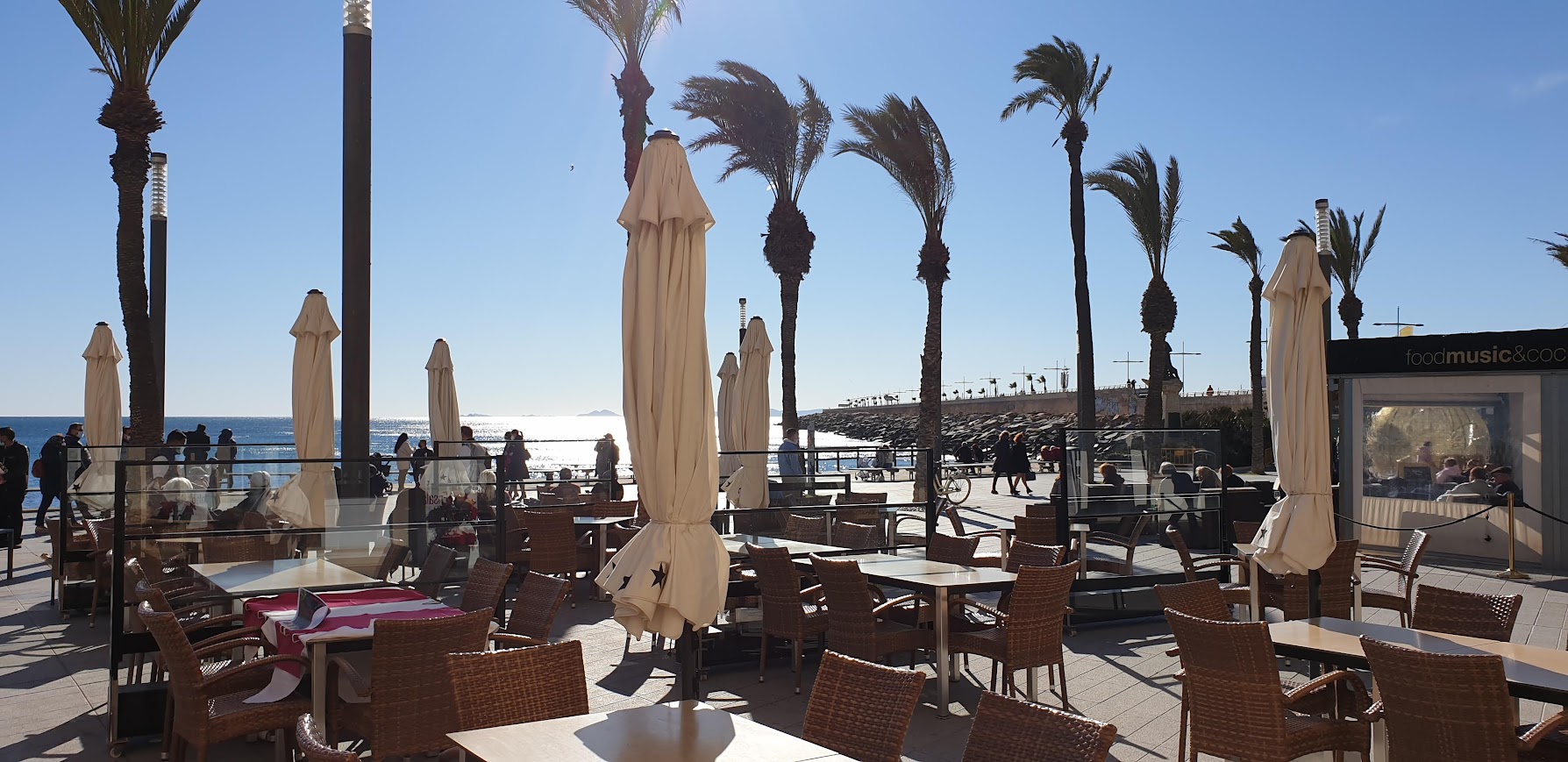
This Monday, the Torrevieja City Council initiated an initiative to reduce the occupancy of public spaces on Paseo de Juan Aparicio by restaurant terraces.
The local hospitality industry’s golden mile’s numerous terraces had been violating the ordinance for years by occupying more space than their permits permitted, as evidenced by the use of a few litres of yellow paint, chalk, masking tape, and the labour of municipal employees. In comparison to others, some had implemented numerous square meters of public space into their operations.
Federico Alarcón, Councillor for Safety and Occupation of Public Spacessaid that the City Council would verify compliance on-site after reinstating the payment of the fee for occupation of public spaces, without evaluating whether restaurateurs were complying with the ordinance.
That is to say, the amount that hospitality businesses have been paying since the tax was reinstated in response to the pandemic has been adjusted to reflect the actual space they occupy on a daily basis and the square meters defined by the municipal ordinance for that specific area.
Torrevieja was one of the tourism municipalities that maintained its tax exemption for the longest period following the pandemic. There are four complete years between 2020 and 2023. During this period, local regulations were also exceptionally adaptable, as businesses demanded benefits in the face of extremely adverse circumstances and installed an increased number of chairs and tables, which were protected by health and safety regulations.
Torrevieja City Council has also established a reputation for being one of the most permissive in terms of permitting the occupation of public space, with a preference for the profitable use of hospitality businesses.
The municipality alone generates 1.4 million euros annually from the occupancy of public spaces by terraces, excluding street markets and other taxable activities in public spaces.
“Faced with the need to return to the pre-pandemic line or create an intermediate one, we have decided to return to the previous one,” according to Alarcón. The last time an occupancy limit line was ordered to be drawn, leaving tables that exceeded it visible and readily distinguishable on the ground, was over seven years ago, during the coalition government (2015-2019), when Javier Manzanares was the councillor for the area.
The promenade’s pavement, which is also referred to as Las Rocas, had already begun to discolour after an extended period of time. The PP municipal government discontinued the signage of the COVID measures that were implemented in 2020 to guarantee that the hospitality industry could continue to operate with specific health precautions.
Upon the return of normalcy following the pandemic, residents residing on the front lines had identified the absence of control over the occupation of public space by hospitality businesses. Terraces encircled benches along the promenade, and establishments relocated their tables and chairs just over three meters from the seafront. The permissiveness of the municipality extends to the incorporation of permanent installations, which are provided with designated spaces on the canopies, palm trees, verdant areas, and streetlights on the promenade.
This situation has resulted in significant traffic congestion at pedestrian crossings over the past two summers, as the terraces were required to accommodate unlicensed street vendors, known as the “top manta.”
Yesterday, Monday 17th March, the Municipal Public Road Occupation Department commenced the process of removing chairs and tables from the majority of the hospitality establishments along Juan Aparicio Promenade. Signs have been posted by municipal labourers and the Local Police officer who is responsible for enforcing the ordinance. These signs will be posted from the Hombre del Mar area and will extend along the promenade to Punta Margalla, including those situated on Playa del Cura.
Councilman Alarcón clarified that the Association of Hospitality and Regional Businesses, with which he maintains a close relationship, had been warned and had informed its members. The group’s board of directors has not responded to this newspaper’s attempts to contact them.
Nevertheless, the employees of the establishments were evidently perplexed, as they were required to remove a significant portion of their terraces after the installation. Additionally, they were uncertain about how to dispose of the remaining furnishings. The issue has been temporarily resolved by the rain, which has decreased the number of individuals who can fit in the fixed installations on the terraces that are already covered.
The Libertad promenade, which is one of the main promenades, has been closed to the public since March 12th as a result of the renovation of the port and the removal of vendor stalls, which is also a result of the municipal initiative. The pedestrian area has been further restricted and will be redirected to the Juan Aparicio seafront promenade in anticipation of Holy Week.
Conversely, the City Council has temporarily suspended the finalisation of the new occupancy ordinance due to its extensive nature, which encompassed a wide range of uses, including the amusement park, bohemian craft market, and terraces. Alarcón observed that the current proposal is to divide the text into distinct ordinances to ensure that they are tailored to the specific use.
The City Council’s intention to implement an external software application to facilitate the payment process for the use of public roads has also been impeded. The municipality contemplated transferring the territory to Suma Gestión Tributaria after promoting the project. However, the autonomous body of the Provincial Council is uncertain about certain aspects of this delegation of functions, and the municipality has temporarily suspended this initiative. The councillor also expressed his optimism that the planned reinforcement of Local Police officers will enable the addition of additional officers to the inspection of public roads throughout the year.
Discover more from Costa Blanca Daily
Subscribe to get the latest posts sent to your email.
Costa Blanca
Hospitality and recreation establishments in Elche receive 36 infringement reports from local police

The Elche Local Police conducted an operation that involved inspecting thirteen hospitality and leisure outlets in various neighbourhoods, resulting in one arrest and 36 violations. The data was made public on Friday, 28th March, mainly as a reminder of the work that is being done. Councilman Juan de Dios Navarro gave the police top for their efforts.
According to local police inspector José Antonio Corrales, the majority of the infractions included drug usage and possession, including four for cocaine possession and seven for hashish, as well as improper company documentation. Additionally, there were two reports for disturbing the peace or disrespecting law enforcement, four for not following the minimum hygienic standards for food storage, one serious infraction for conducting the activity after hours and behind closed doors, and seven for irregularities found on the property, including improper documentation.
Additionally, officers found six infractions for permitting smoking in unapproved indoor locations, three for type “B” slot machine identification guide deficiencies, and one major infraction for emergency escape and door flaws. Additionally, a report was made about the selling of illegal tobacco at a pub, where 20 packets were confiscated and one individual was detained on court order and imprisoned.
Discover more from Costa Blanca Daily
Subscribe to get the latest posts sent to your email.
Costa Blanca
Visitor to Catral cemetery locked inside
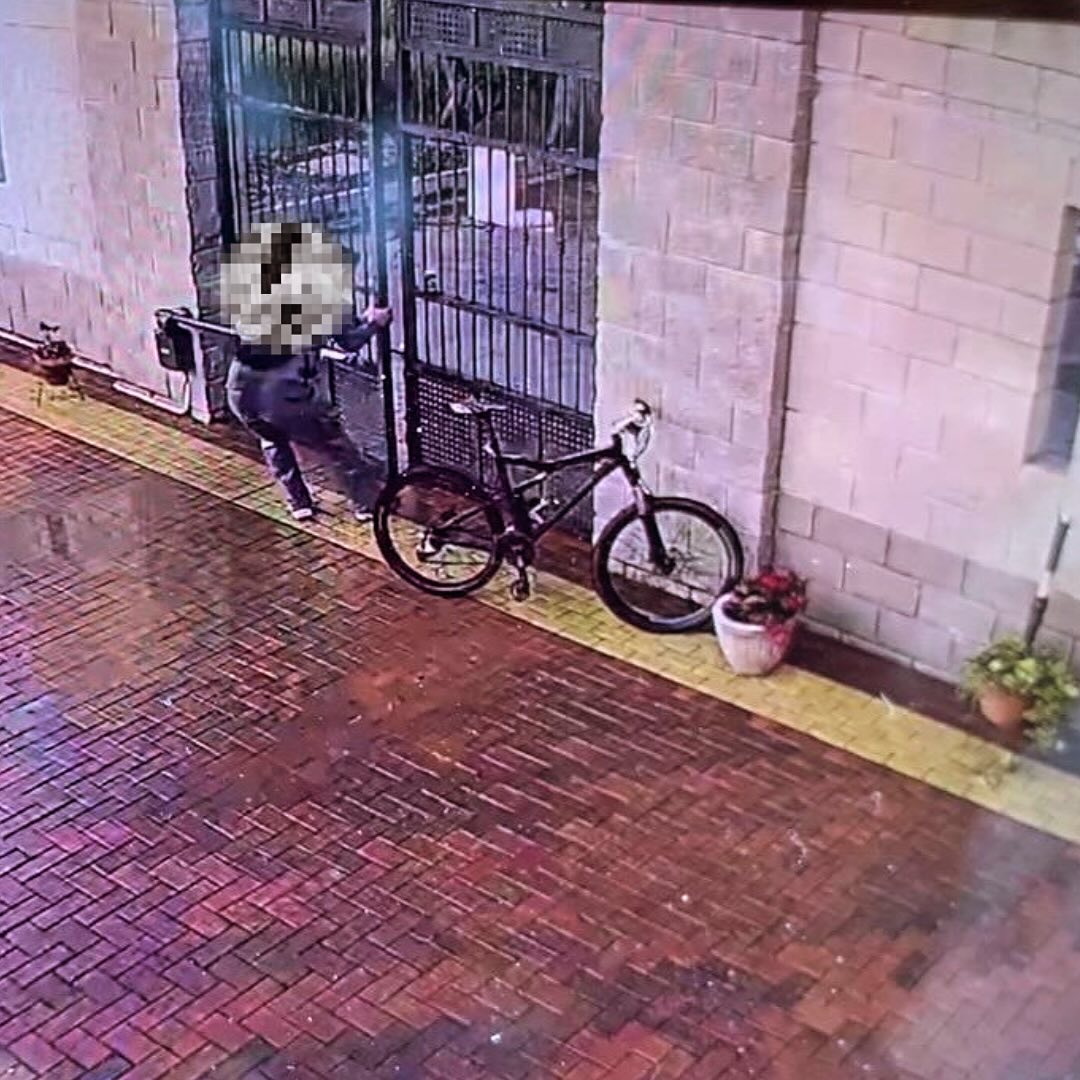
As nightfall approached on one of these soggy spring days in March, a young man decided it would be a good idea to visit a cousin or acquaintance’s grave and take a walk through the cemetery. Because the cemetery still closes its (automatic) gates at six o’clock at this time of year, but without the winter gloom that may discourage anyone from going.
However, the door was locked when he attempted to exit. The visitor didn’t seem to want to spend any more time among the cemeteries, despite the cemetery’s reputation as a particularly tranquil spot. Unaware of the placard bearing the mobile phone number for anyone needing help, he dashed out the gate. It was all on camera.
Joaquín Lucas, the mayor of Catral, maintains that this occurrence is unrelated to the privatisation of the cemetery works and feels that management by an outside company is an efficient approach to provide this service in a municipal office. He went on to say that the young man who who was locked in is from the nearby municipality of Dolores rather than Catral.
The local police took to social media and atacked the man’s “reckless” behaviour. He has been named in connection with “criminal proceedings for a crime against another’s property.” Nonetheless, the business will be liable for any damages brought on by the damaged door anchors.
In addition to clarifying that the business employs two workers—a gravedigger and a labourer who maintains the communal areas and restrooms—the Councillor for Services, Daniel Escudero, reaffirmed that the automatic door is an option offered by the company itself.
Discover more from Costa Blanca Daily
Subscribe to get the latest posts sent to your email.
Costa Blanca
Five arrested in Alicante and Murcia for shoplifting
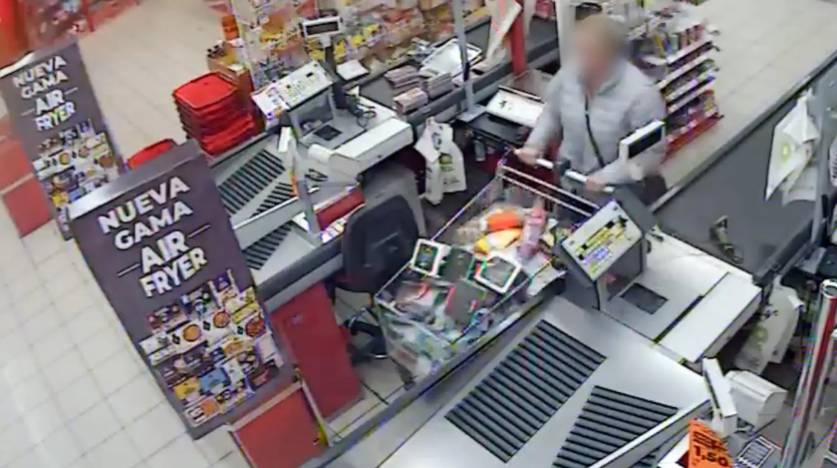
Five individuals involved in grocery theft have been taken into custody by the Guardia Civil. In the regions of Alicante and Murcia, the thieves were stealing in a number of locations for a well-known supermarket company. The things that were stolen are worth over 8,000 euros in total.
The investigation started after the retail chain representative filed a complaint. The pattern was consistent across all cases: three or four people went into the store, and one of them loaded up a cart with expensive things like canned goods, extra virgin olive oil, sausages, or alcoholic drinks. The last one hurried out of the grocery without paying, and another diverted the attention of the staff.
It was discovered that the same people were responsible for the crimes in multiple towns in Alicante and Murcia after examining the security footage from the impacted businesses. Since the suspects did not live in the residences where they were registered and lacked a stable address, it was very difficult to find them.
Shortly after committing another theft at a store in a suburban neighbourhood of Rojales (Alicante), officers caught two of the suspects off guard and took them into custody. Many of the stolen goods were found at that time and brought back to the impacted business.
The other three were later taken into custody in the cities of Almoradí (Alicante) and Guardamar del Segura. The majority of the pilfered items were sold on. Additionally, the two cars that were utilised in the crimes were taken.
Eleven thefts have been resolved as a consequence of the investigation conducted by the Novelda Civil Guard’s investigation section. The cities of Novelda, Torrevieja, Almoradí, Catral, and Rojales in Alicante as well as the municipalities of San Javier, Jumilla, San Pedro del Pinatar, Cartagena, Archena, and Caravaca de la Cruz in Murcia were the sites of these crimes.
Discover more from Costa Blanca Daily
Subscribe to get the latest posts sent to your email.
-

 Costa Blanca2 weeks ago
Costa Blanca2 weeks agoElche is seeking tender for an additional 22,000 plants, shrubs, and flowers from 150 different species
-
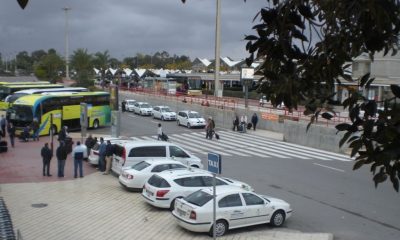
 Costa Blanca2 weeks ago
Costa Blanca2 weeks agoFormer leader of ETA, will appear in court today charged with planting a bomb Alicante-Elche airport
-

 Costa Blanca2 weeks ago
Costa Blanca2 weeks ago€85,000 lottery winner in Torrevieja
-

 Costa Blanca2 weeks ago
Costa Blanca2 weeks agoMan sought for robbery and fraud in Amsterdam has been caught in Alicante
-

 News2 weeks ago
News2 weeks agoTwo arrested in Elda for stealing from restaurants and hostels
-
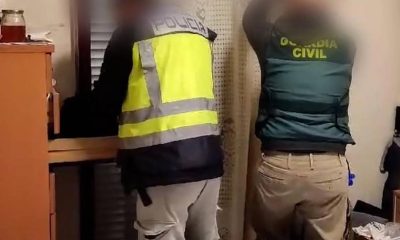
 Costa Blanca1 week ago
Costa Blanca1 week agoIn Alicante, a criminal group that specialised in robberies at pharmacies and banks has been dismantled
-

 Costa Blanca2 weeks ago
Costa Blanca2 weeks agoThe housing map of the province of Alicante: Where are the majority of houses being constructed?
-
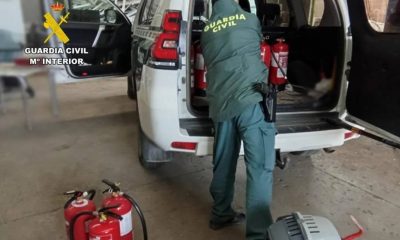
 Costa Blanca2 weeks ago
Costa Blanca2 weeks agoMan stole fire extinguishers to sell as scrap metal



